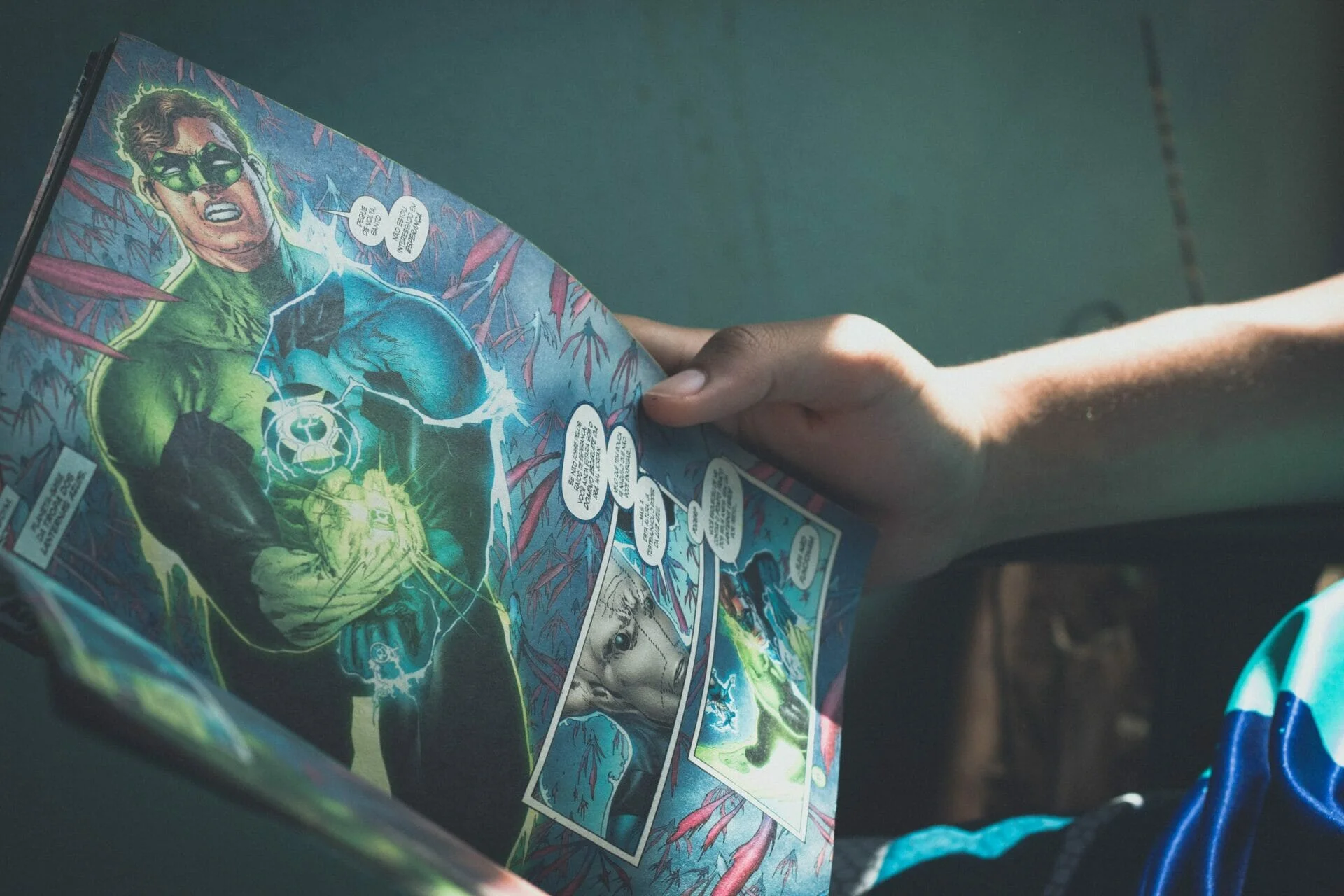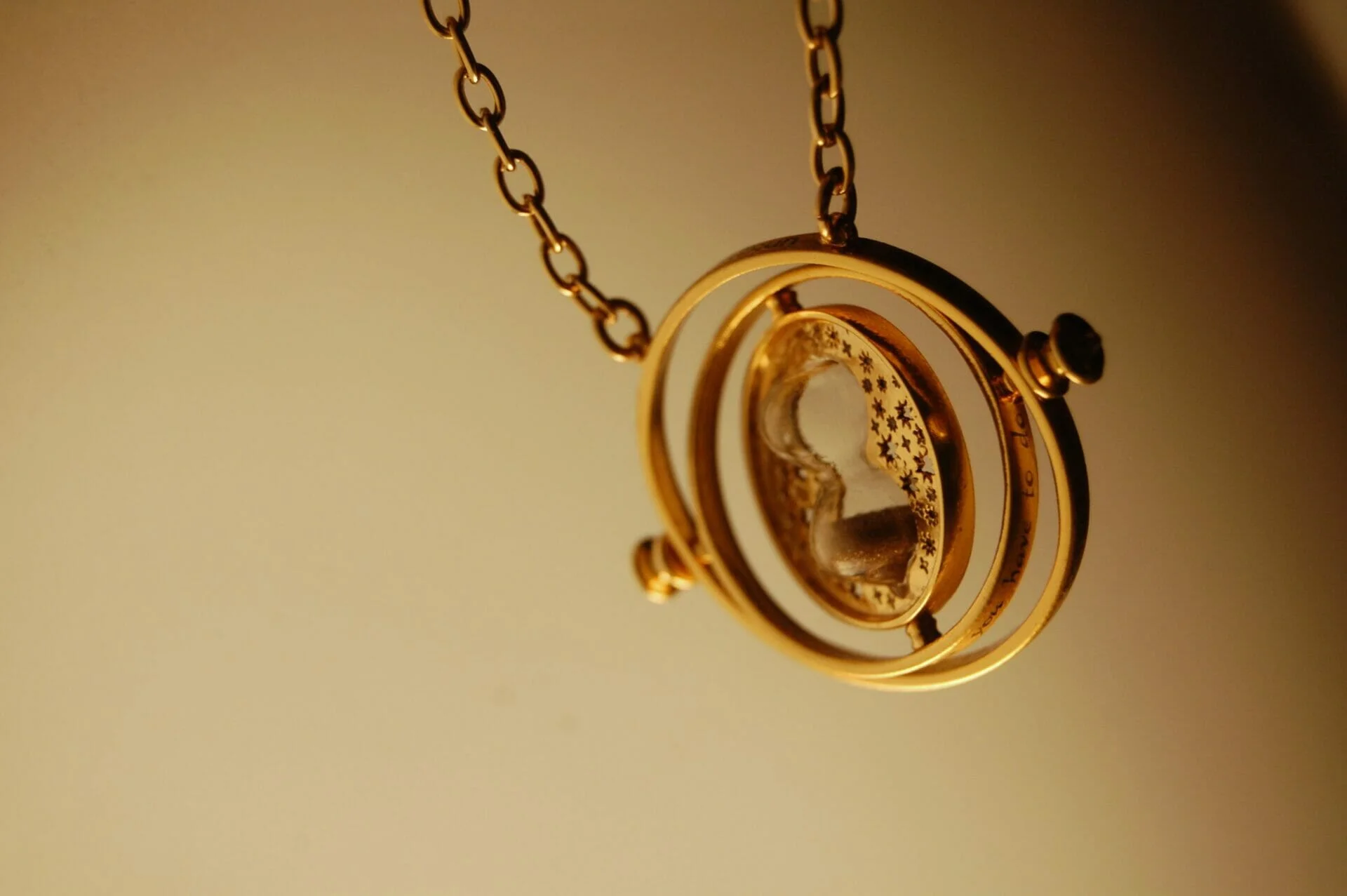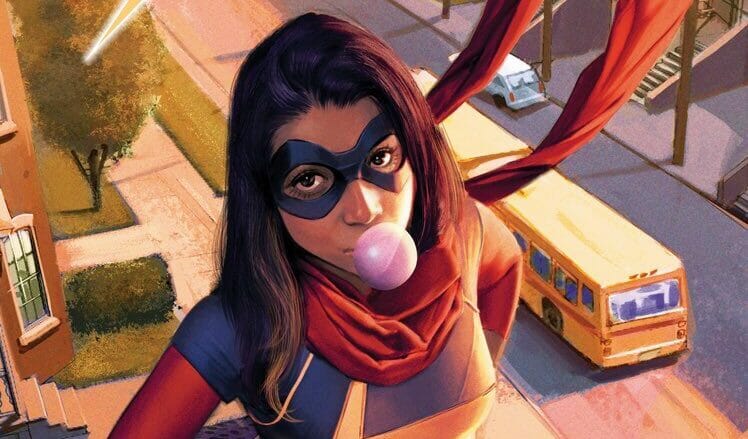
Ms. Marvel | Making a difference, together
Year
Format
Every city has a villain, and every villain needs a superhero. In Jersey City, Kamala Khan, a teenage Pakistani American, takes up the role under the name of Ms. Marvel. After her powers come to light, she has to come to terms with her many identities: a teenager and a superhero, a Pakistani and an American.
Along with her, the reader will explore the deepest hardships of teenagers – like the fear of facing a hopeless future – along with cameos from some known heroes such as Wolverine or Captain Marvel, heroes Kamala herself is a huge fan of.
The first appearance of Ms. Marvel in comics was in Captain Marvel issue #14, 2013. Her own series premiered in 2014, created by editors Sana Amanat and Stephen Wacker, writer G. Willow Wilson, and artists Adrian Alphona and Jamie McKelvie. The realistic and yet caricatural style of Alphona alternates with the more cartoonish one of Takeshi Miyazawa. Nevertheless, the comics keep on being consistent throughout the series both in themes and general feeling. Ms. Marvel was also featured in The Magnificent Ms. Marvel, in 2016. In 2022, a TV series dedicated to the comics premiered on Disney+.
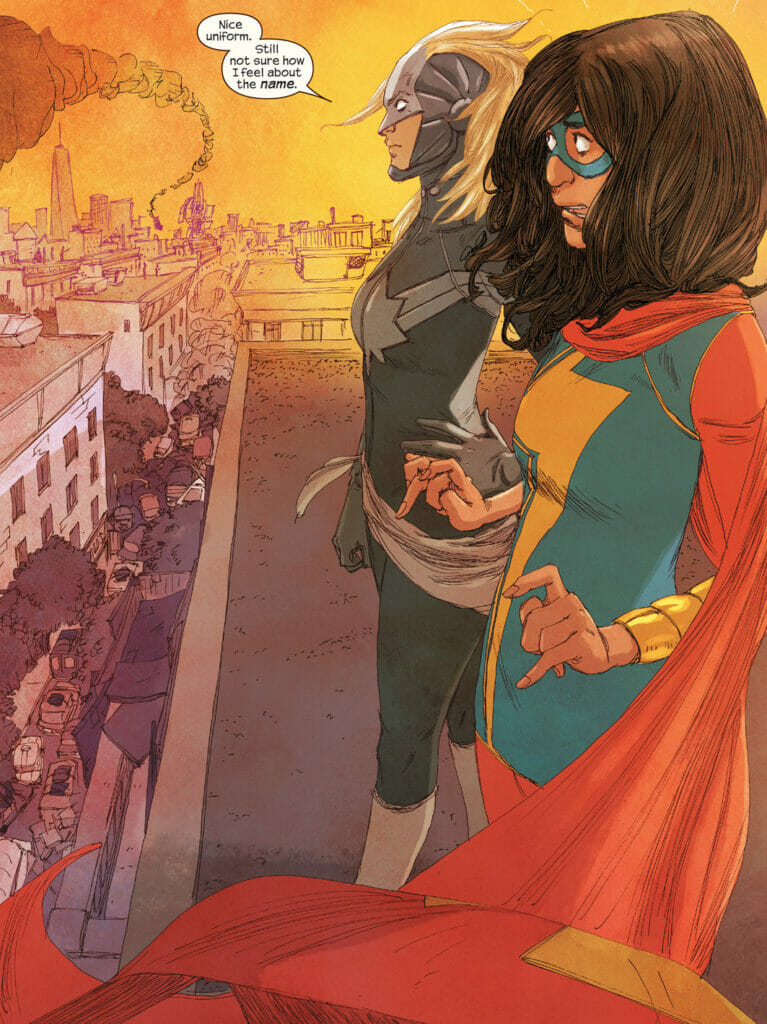
The hard part of asking for help
One thing that teenagers in comics and real life have in common is feeling lost. In the first Ms. Marvel issue, Kamala gets her powers in quite a sudden way. This leaves her wondering why and how. One night, she sneaks out of her parents’ house to go to a party. That same night, she gets run over by the Terrigen Mist: a mutagenic substance that can alter the Inhuman body. The Inhumans are genetically superior to humans, but they lived among people for generations, keeping their existence a secret: so much that Kamala does not even know she is one. She faints and, in a vision, sees her heroes: Captain America, Iron Man, and Captain Marvel. She expresses the desire to be like her. And when she wakes up, she does look just like Captain Marvel.
Kamala Khan is a huge superhero fangirl: in this, she is similar to most readers of the Ms. Marvel comics. It creates a connection with them to see a superhero that freaks out when she sees Wolverine, just like any teenage reader would. Also, similarly to I Kill Giants, it builds a representation of nerd girls, a group that is often left out of media.
After understanding her polymorphism and healing abilities, she will choose a new identity. Ms. Marvel is the perfect mix between her real identity and the superhero she most looks up to. Her journey of self-discovery starts from a condition of utter loneliness. She keeps everything to herself, unable to tell her friends, in fear that they will not believe her, and unsure about her family’s reaction. This choice risks ruining her relationships, but she is not willing to give up Ms. Marvel and go back to being only Kamala Khan. However, she will learn that asking for help is part of the growing-up process. Not everyone can be trusted, but reliable friends and relatives are a fundamental part of everyone’s life.
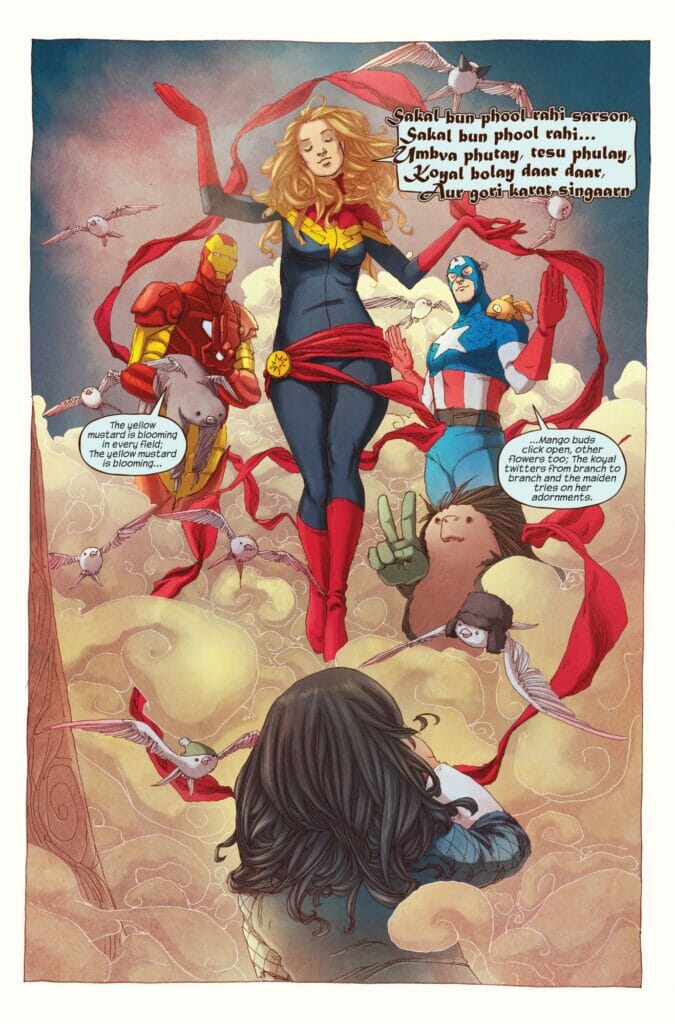
A Pakistani family in the United States
In the beginning, the Ms. Marvel comics have a strong focus on Kamala’s cultural identity. Even if this focus will leave room for more classic features of a superhero story, like action and romance, her ties with her family and heritage define Ms. Marvel as a unique and well-rounded character. Kamala is born and raised in New Jersey, so she is no different from her American peers. However, her traditional Pakistani family severely influenced her upbringing. They urge her not to go to parties, not drink, not hang out with boys, and go to the Sheikh’s youth lectures. And it is not only limited to the family. Folks in her school exclude her and make fun of her, for example sneaking alcohol into her beverages.
Kamala feels torn between not disappointing her parents nor going against her roots and being free, like every other teenager in Jersey City. It is no coincidence that when she transforms for the first time, turning into her idol, she uses her polymorphic abilities to turn into a white woman. Multiculturalism and immigration from the perspective of people who go through it is a theme that has recently been gaining relevance. For example, Primera Conjugación of Laura Casielles helps the reader think about the true beauty of meeting someone from another country.
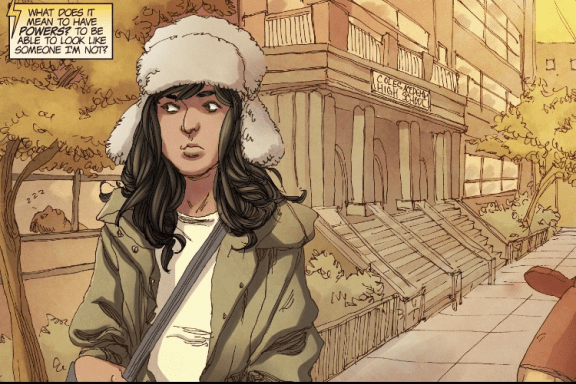
A teenager with superpowers
I get it. I do. The media hates us because we read on our smartphones. The economists hate us because we trade things instead of buying them. […] Just because they’re old doesn’t make them right. We’re not the ones who messed up the economy or the planet. Maybe they do think of us as parasites, but they’re not the ones who are gonna have to live with this mess.
Ms. Marvel, issue #10, G. Willow Wilson, Adrian Alphona, Ian Herring, 2014
A strong theme in Ms. Marvel comics is the perspective of young people on the world. Kamala fully represents teenagers: she reads comics, she fangirls over them, and she falls in love too easily. She is cheerful and sharp, with a sense of humor that resembles Marvel’s Peter Parker.
While enjoying her life and her passions, Kamala never runs away from responsibilities – even more so as she becomes Ms. Marvel. She feels like changing the world for the better is not only her duty but her right as well.
She channels this need to make a difference by defeating evil and taking care of the weakest.
A generation looking for redemption
Kamala shares this sentiment with most people of her age. However, her peers do not possess her powers, thus they feel much more helpless. This is why in the comic’s first arc, a group of teenagers chooses to sacrifice themselves. Evil forces brainwashed them into thinking that extreme measures are the only way to make a difference. In issue #10, Ms. Marvel tries to convince them that this is not true. Instead, joining forces is a better way to be heard. Kamala and her peers are worried about the state of the economy, the increasing poverty, and climate change. Her words focus on the blame that the previous generation put on the newer ones. The comics leave an across-the-board message, aimed at giving space to the youngest and helping them raise their voices.
From the absurdly angsty plot of The End of the F***ing World to the hard-hitting realism of Euphoria there seems to be much to explore in the turbulent years of teenagers. The Ms. Marvel comics offer an exciting perspective that does not show teens as superficial and spoiled, but as passionate and caring humans ready to make a difference.
Tag
Buy a ☕ for Hypercritic






